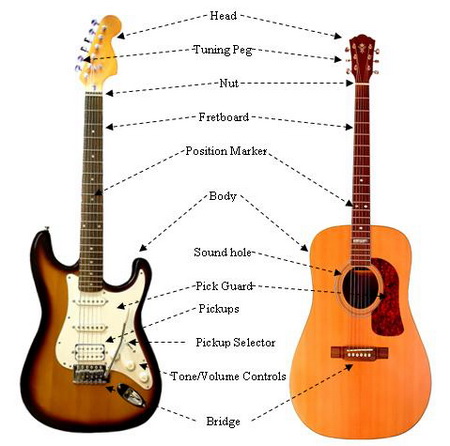How to Use Expressions Correctly When Writing Songs
 A true expression of meaning and feeling represents the “holy grail” of achievement to most artists, songwriters included. Where the painter uses paint and brushes as tools of expression, the songwriter employs chords, melodies, rhythms and words.
A true expression of meaning and feeling represents the “holy grail” of achievement to most artists, songwriters included. Where the painter uses paint and brushes as tools of expression, the songwriter employs chords, melodies, rhythms and words.
How is it that a songwriter is able to express his or her unique feelings, while at the same time rendering that expression into something universal to which the average person can relate? What steps must follow to achieve the songwriter’s “holy grail,” natural talent aside?
Things To Consider When Writing A Song
First, consider the “voice” or perspective from which you write a song on guitar. In order from least to most universal, your options are: first-person, second-person and third-person.
The first-person “I” usually makes the song more personal. You don’t have to avoid the use of “I”, but you do need to practice caution. Whatever you say after the “I” needs to be universal. To show you what I mean, have a look at the following two made-up verses:
I’m havin’ a bluesy day
failed my test in calculus
and my dog ran away
Versus
I’m havin’ a bluesy day
My sweet baby left me
and my dog ran away
In the first case, the lyric “I failed my test in calculus” is far too personally specific. The second example is the more universal of the two. Most people can relate to a relationship break-up and/or to the loss of a pet.
Next, consider the tone of the song, and any imagery that corresponds to that tone. Are you writing an angry song? A sad song? Do you want the lyrics to be poetic-sounding and “deep”, or would you rather create that sense of depth through a conversational, “average-joe” tone?
Compare And Contrast These Two Verses:
Don’t try
Overturn your insides
Cut off
So what?
Ultimate, deathbed
Comfortable, into it
Senseless, immature
Way off, insecure
-Lisa Germano, “If I Think of Love”
Now blue ain’t the word for the way that I feel
And the storm’s brewin in this heart of mine
This ain’t no crazy dream, I know that it’s real
You’re someone else’s love now, you’re not mine
-Jerry Lee Lewis, “Crazy Arms”
Notice that both of these verses attempt to express the heartache and frustration of a love relationship gone wrong. The first example does this in a wordier and more abstract fashion, while the second example addresses the issue in plain, less educated sounding language.
The two artists used for the comparison are not at all similar. In fact, they are worlds apart in terms of musical genre and style. However, in each case, the artist in question expressed something universal and did so in a manner suitable to their guitar music genre.
The lesson to take from this could be summed up as follows: pay attention to the “level” of language demanded by your style of music. Are you working in a genre that naturally begs for more formal, ‘beautiful’ language, or should you keep it simple? Don’t try to write a Shakespearian sonnet for a country song unless you’re sure you can pull it off!
The Must-Have Guide For Learning The Art of Songwriting
Superior Songwriting will teach you the best songwriting practices in a step-by-step manner. You’ll never get stuck in a rut again or run out of ideas!
Click here to download Superior Songwriting instantly…







Leave A Comment